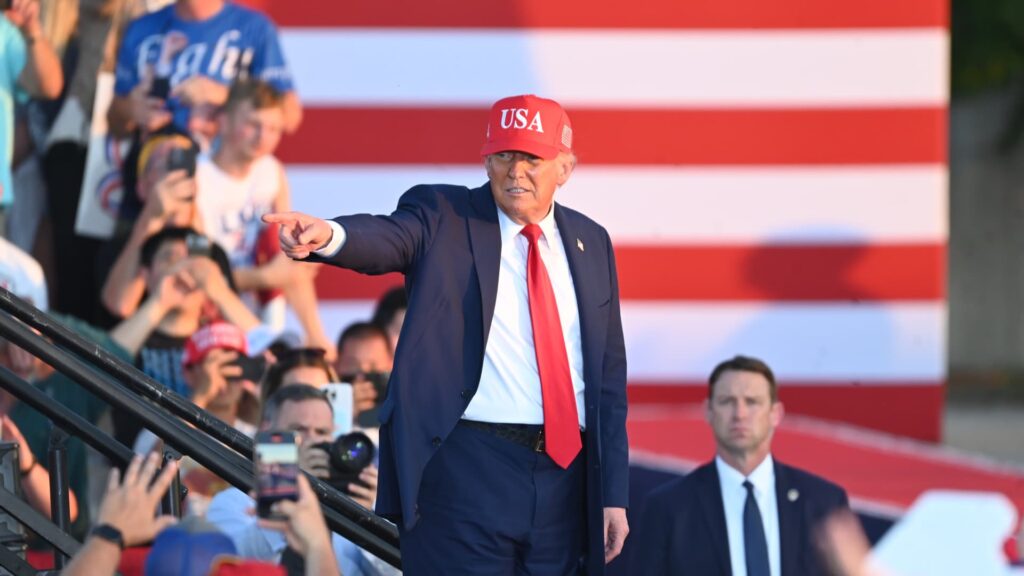President of the United States Donald J. Trump delivers remarks to a crowd at an America250 rally in Des Moines, Iowa, United States, on July 3, 2025.
Kyle Mazza | Anadolu | Getty Images
U.S. President Donald Trump has threatened an additional 10% tariff on countries that orient themselves along the “Anti-American policies of BRICS.”
Trump’s announcement, which did not elaborate on any specific policy of BRICS, came as the group’s meeting is underway in Rio de Janeiro, Brazil.
The bloc’s leaders took aim at Trump’s sweeping tariff policies in a joint statement dated July 6, warning against “unjustified unilateral protectionist measures, including the indiscriminate increase of reciprocal tariffs.”
Without calling out the U.S., the leaders voiced “serious concerns about the rise of unilateral tariff and non-tariff measures which distort trade and are inconsistent with WTO rules,” warning that the “proliferation of trade-restrictive actions” threaten to disrupt the global economy and worsen the existing economic disparities.
“Any Country aligning themselves with the Anti-American policies of BRICS, will be charged an ADDITIONAL 10% Tariff. There will be no exceptions to this policy,” Trump said in a post on Truth Social Sunday evening stateside.
The BRICS group of developing nations also offered symbolic backing to fellow member, Iran, condemning a series of military strikes on the country, without naming Israel or the U.S which carried out the military operation.
BRICS includes Brazil, Russia, India, China, South Africa, Saudi Arabia, Egypt, United Arab Emirates, Ethiopia, Indonesia and Iran. The bloc describes itself as “a political and diplomatic coordination forum for countries from the Global South and for coordination in the most diverse areas.”
This year, Chinese President Xi Jinping sent Premier Li Qiang to the meeting in his absence, while Russian President Vladimir Putin, who faces an arrest warrant from the International Criminal Court, attended online.
BRICS goals include improving economic, political and social cooperation among its members, and “increasing the influence of Global South countries in international governance.”
The bloc seeks to challenge Western-dominated institutions of global economic governance, as well as to supplant the U.S. dollar’s role in the global economy, according to the Carnegie Endowment for International Peace.
Separately, Trump confirmed that the U.S. will start delivering letters on Monday, detailing country-specific tariff rates and any agreements reached with various trading partners. That affirmed Treasury Secretary Scott Bessent’s comments over the weekend.
The Trump administration has said that tariffs announced in April will take effect on Aug. 1, instead of July 9, for countries that have not reached an agreement with the U.S.
Bessent rejected the idea that Aug. 1 was yet another new tariff deadline. “We are saying this is when it’s happening, if you want to speed things up, have at it, if you want to go back to the old rate that’s your choice,” Bessent said Sunday on CNN’s “State of the Union.”
In April, Trump announced a 90-day pause on the steep tariffs he had unveiled just days prior on most trading partners. That pause is due to expire on Wednesday, sparking concern among investors and U.S. trading partners.
— CNBC’s Erin Doherty, Lim Hui Jie contributed to this story.

